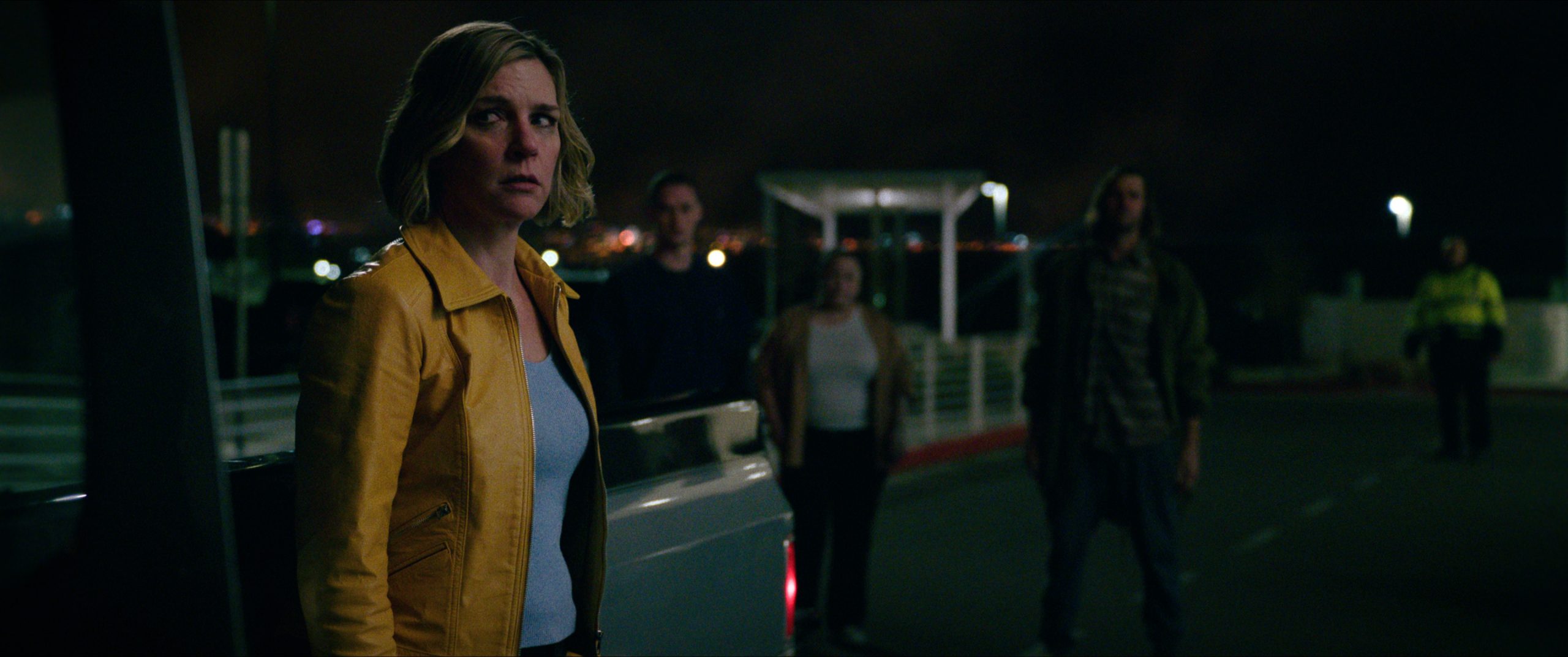Warning: This episode contains spoilers for the first two episodes of Pluribus.
Forget egomaniacal meth kingpins and sleazy con-artist attorneys. In Breaking Bad and Better Call Saul creator Vince Gilligan’s new post-apocalyptic sci-fi drama Pluribus, the star of the show is Rhea Seehorn’s Carol Sturka, the curmudgeonly best-selling author of an uber-popular series of pirate-themed speculative historical romance novels. Oh, and she also turns out to be one of only 13 people in the world immune to a hive-mind style alien virus that takes control of Earth’s population.
[time-brightcove not-tgx=”true”]
Pluribus, the first two episodes of which are now streaming on Apple TV, opens with two astronomers discovering an extraterrestrial radio signal coming from 600 light-years away that, once decoded, is revealed to be composed of four tones that correspond to the nucleotide bases that make up RNA: guanine, uracil, adenine, and cytosine. Scientists subsequently recreate this sequence in a lab and begin testing it on animals, a process that eventually leads to a rat bite that creates patient zero of a highly contagious infection that acts as “psychic glue,” binding the minds of nearly every person on the planet into a compulsively cheerful collective consciousness.
“Pluribus is my twist on a post-apocalyptic zombie tale. The big difference is these people are not zombies. They’re really, really happy people who still have all their faculties. They’re not robots, and they’re not aliens,” Gilligan told Men’s Health of the impetus for the series. “When you watch The Walking Dead, as riveting as that show is, I don’t know if there’s anybody ever in the history of [watching] that show, who said, ‘Man, I wish I could be a zombie.’ You don’t want to be a zombie. You want to be Daryl Dixon. I want people who watch Pluribus to be able to say, ‘I kind of would want to be another [happy person].’”
Read More: Vince Gilligan Is Breaking Good
In Pluribus‘ premiere, the rapidly spreading outbreak hits the water supply of Carol’s home city of Albuquerque just as she and her long-term romantic partner/manager Helen (Miriam Shor) are returning from the final stop of Carol’s latest Winds of Wycaro book tour, resulting in a mass spreader event that leaves Helen dead and Carol reeling in the face of her unbelievable new reality. Once Carol finally gets a grasp on what’s actually going on—thanks to an information download from hive-mind representative Davis Taffler, the former U.S. under secretary of agriculture for farm production and conservation—she becomes determined to find a way reverse the virus’ hold on humanity. Or, at the very least, keep the collective from finding a way to bring her under its influence.
Unfortunately, Episode 2—titled “Pirate Lady” in a nod to Zosia (Karolina Wydra), the hive mind’s chosen companion for Carol—then throws a few hitches into our reluctant hero’s plan to save the world. First, Carol discovers that directing too much negative energy at any member of the hive sends them all into a temporary seizure of sorts that typically results in the deaths of around 11 million people. That’s in addition to the nearly 900 million, including Helen, who already died during the so-called joining process.
Later, at a meeting with the five other immune individuals who speak English, Carol also comes to learn no one else is as keen on returning the world to normal as she is. This leads to an anger and alcohol-fueled crash out from Carol that results in another hive-mind seizure, turning her, in her own words, into “the biggest mass murderer since Stalin.”
However, by the end of the second episode, the cracks in the concept of the hive’s “blissful” assimilation are starting to show. While those infected become perpetually happy, peaceful, and cooperative, they also lose their individuality, free will, and ability to feel the full range of human emotions. Perhaps the hive mind’s utopian existence isn’t all it’s cracked up to be.
As for where the puzzle-box series will go over the course of its nine-episode first season and beyond, Gilligan told TIME in a recent profile that while he already has a solid roadmap for the future, he’s also open to switching things up. “I want to stay open to the possibilities of going a different way,” he says. “It’s like if you get in your car and you say, ‘I’m in Virginia, I want to head out to California. So I know, basically, the direction I need to head.’ But there’s all these little side trips and backroads you can take along the way—and that makes the trip more exciting.”

